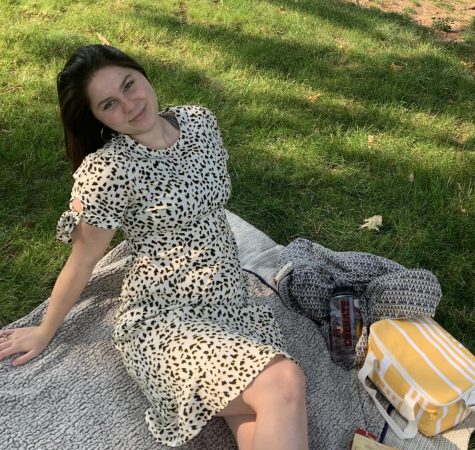Readin with Rachel: Sleeping Without Silence
Oct 16, 2018
Sleeping is hard to come by for a diagnosed insomniac, especially during the stressful days of college. There are so many different factors affecting my sleeping schedule, such as homework I have procrastinated, people in my social life and even upcoming events. Being a malleable person, it’s easy for me to get caught up in the little things. After a series of trials and errors, I’ve found what relaxes me and I have been able to get to sleep faster. The tossing and turning for hours has become a less frequent occurrence.
I was diagnosed with chronic insomnia when I was 16 years old. I did not understand why I would stay awake for hours doing nothing but lying in bed. I tried all the tricks, like keeping your phone in the other room, playing peaceful music and even being in a pitch black room! Nothing seemed to work. Finally, I told my father, who ended up taking me to what he called, “the sleep doctor.”
After the first consultation, she diagnosed it as insomnia, but she needed more information. So, I ended up having to spend one day a week for five weeks in the sleep clinic with wires hooked up to my body and a camera staring down at me. Of course, the first night was hard with it being such a new environment, but eventually I became comfortable with it.
After the five weeks, sure enough, they confirmed that I had insomnia. They offered a prescription to sleeping pills, however I was very not keen on taking that type medication for sleeping. The doctor then offered a counter option, explaining that melatonin was a good start. She later gave me the best advice for my problem: “Find what works for you.” That seems silly because it is such a small statement, but I thought the only way to treat insomnia was with medication. However, every night I have to find something that works for me
I started with the melatonin, which became my foundation. But I also found that there are a few things that I can do personally to help with my sleep.
After a series of trial-and-error experiments, I discovered that routines are what work for me. The melatonin is something I should not use every night, or else I will build up a tolerance. Essential oils became my best friend, which ended up causing me to invest in getting my own personal blend made by a specialist. Reading also helps me during times of restlessness.
I know I am not the only one struggling with sleep, undiagnosed or diagnosed. The key is finding what works for you personally. If sleeping has become more of a chore than a natural function, then it’s never too late to try new things. One thing to watch out for is being awake for hours on end without any outside causes. If that’s the case, it might be useful to go to a doctor and check out whether there’s a deeper-rooted problem. I wish I could go back and tell my younger self to stop suffering with the long hours of unrest. If you find yourself in the same position I was in, don’t be afraid to seek help.













